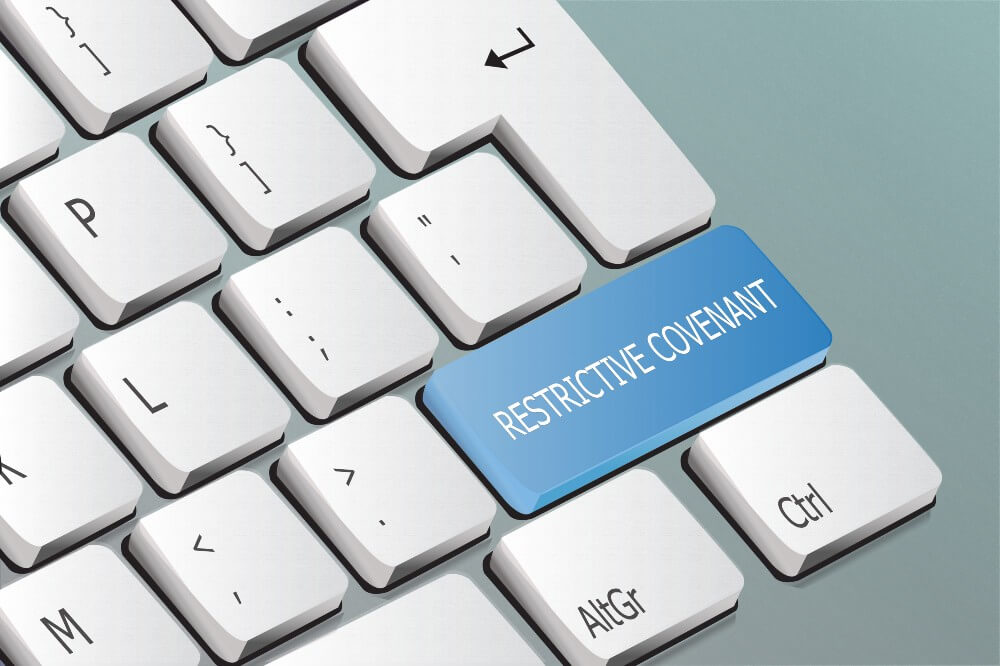Restrictive Covenants in Employment Contracts
Restrictive covenants in employment contracts are terms which restrict employees’ activities after employment has ended. Business owners use them to mitigate the risk of departing or ex-employees stealing clients or taking business critical information with them.
Are restrictive covenants in employment contracts enforceable?
If excessive, hey can be void – and unenforceable – for being in restraint of trade, that is limiting how an employee can use their skills in pursuing their career. However, they can be enforceable when the employer can show it has a legitimate proprietary interest, such as confidential information or customer relationships, to protect and the covenant goes no further than is reasonable to protect it. It is therefore important that such covenants are carefully drafted.
What happens if a restrictive covenant is breached?
If an employer considers that an employee has breached a restrictive covenant, they can apply for an interim injunction to stop the employee’s activities pending a full trial which will decide the issues in the case and whether the covenant is enforceable. The court will consider:
- Whether the employer has a strong case
- Whether compensation to the employer would be an adequate remedy
- The advantages and disadvantages an injunction would or would not create to the employer and employee and whether it is justifiable in the circumstances
- If the ‘status quo’ should be maintained pending a trial
A case study: Planon v Gilligan
In a recent case, the Court of Appeal has analysed the test which the court must apply when making decisions about interim injunctions.
In Planon v Gilligan, the employee was a sales manager. There was a restrictive covenant in his employment contract in the form of a non-compete clause, preventing him from working for a competitor for a period of 12 months following termination. He resigned in July 2021 but refused to say who he was going to work for. On 1 September, he started working for a competitor. The employer found out the following day. A few weeks later, the employer sent a letter before action to indicate they intended to take legal action. A month after that, in late October, the employer lodged a claim and made an application for an interim injunction. A hearing took place on 5 November 2021. The High Court judge refused to grant the injunction. The non-compete clause would make it extremely difficult for the employee to get any work at all during that 12-month period. The Court also said that the clause was not likely to be enforceable. The employer appealed.
The Court of Appeal refused to overturn the decision but for different reasons. They overturned the judge’s decision on the enforceability of the clause because the judge had not applied the test correctly. One Court of Appeal judge said that the employee had now been employed for 7 months, and even if the clause were enforceable in theory, the delay meant that it would not now be appropriate to grant the injunction because the damage was already done – the disadvantage to the employee therefore outweighed the advantage to the employer of granting the injunction. Another judge said the damage would have been done in the first few days and certainly well before the November hearing, as such that refusal of the injunction was reasonable at the first hearing; compensation would be the appropriate remedy. The Court of Appeal said the High Court had been entitled to decide that damages were not an adequate remedy for the employee. One judge noted that unless the employee were independently wealthy, or the employer offered paid garden leave for the whole period of restraint, damages would not be adequate as a remedy (if the employee were ultimately successful), especially if the employee has a mortgage and a family.
This case shows how vital it is to take prompt action when applying for an injunction in cases where restrictive covenants in employment contracts have been breached. The Court of Appeal noted that the damage is usually done within the first few days of the new employment. Courts may be minded to maintain the status quo if employers delay and the damage has already been done by the time the matter gets to court. It is also important to ensure that covenants are only as wide, and last for as long as necessary to protect business interests to maximise the chances of enforceability.
Here to Help
For advice about using restrictive covenants in employment contracts, get in touch with Richard Gvero, Joint Senior Partner and Head of Employment.
Find out more about our Employment Law Packages, Employment Law Health Check, HR and Employment Law Training and the Longmores Employer Assistance Package (LEAP) with optional insurance to protect you against the costs of employment tribunals, legal fees, settlements and financial awards in the event of a dispute.
Please note the contents of this article are given for information only and must not be relied upon. Legal advice should always be sought in relation to specific circumstances.

